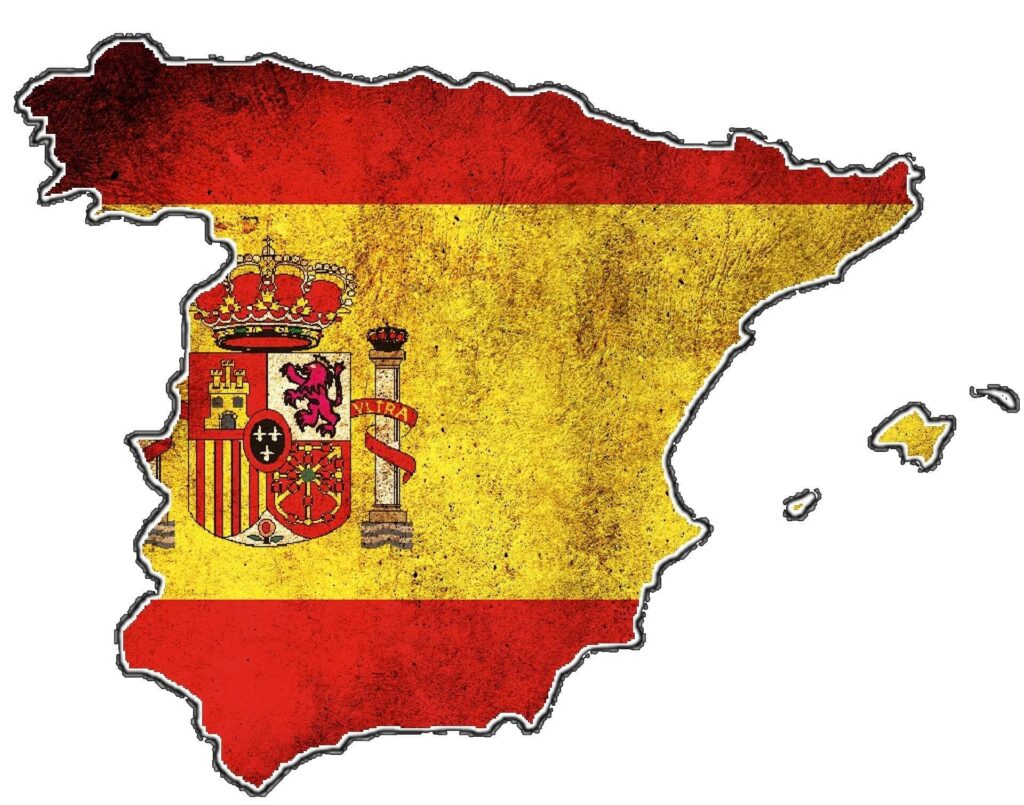Why Learning Key Spanish Phrases Enhances Your Trip
When traveling to Spain or any Spanish-speaking country, mastering a few essential phrases can make a world of difference in your experience. Not only will it help you navigate daily interactions more smoothly, but it will also foster connections with locals and demonstrate respect for the culture. While many people in tourist-heavy areas speak some English, especially in Spain’s major cities and coastal resorts, there is a genuine appreciation when visitors make an effort to communicate in Spanish. Even a basic understanding can turn a simple transaction into a warm exchange.

Greetings That Break the Ice
One of the most important parts of any interaction in Spain is the greeting. Spanish culture places great emphasis on polite beginnings. In the morning, “Buenos días” is used until around midday, followed by “Buenas tardes” in the afternoon and “Buenas noches” in the evening. For informal situations or when meeting friends, a simple “Hola” works perfectly. In Spain, greetings are often accompanied by a smile and, in certain social contexts, by two kisses on the cheek, starting from the left side. When addressing strangers or in formal situations, “Mucho gusto” (pleased to meet you) or “Encantado/a” (delighted) are great ways to set a friendly tone.
Politeness and Courtesy in Daily Life
Beyond greetings, polite expressions play a central role in Spanish social interactions. Words like “por favor” (please) and “gracias” (thank you) are essential in every conversation. The response to “gracias” is often “de nada” (you’re welcome) or “no hay de qué” (it’s nothing). If you need to get someone’s attention, “perdón” or “disculpe” can be used respectfully. In more formal settings, “¿Podría ayudarme?” (Could you help me?) shows both politeness and consideration. Spanish people value respectful language, and using these expressions makes interactions warmer and more cooperative.
Ordering Food and Drinks with Confidence
Eating out is a highlight of any trip to Spain, and knowing the right phrases can make the experience even more enjoyable. To get a server’s attention, you can say “Perdón” or “Disculpe.” When ordering, “Quisiera…” (I would like…) or “Para mí…” (For me…) are polite options. For example: “Quisiera una paella de marisco, por favor.” If you want to ask for the menu, “¿Me trae la carta, por favor?” will work perfectly. When it’s time for the bill, “¿Me puede traer la cuenta?” is the standard phrase. For drinks, “Un café con leche, por favor” or “Una cerveza, por favor” will get you exactly what you want. Mastering these expressions will make dining in Spain smooth and pleasant.
Shopping and Markets: The Art of Conversation
Shopping in Spain, whether in boutiques or bustling markets, is often a more social experience than in some other countries. When entering a shop, it’s customary to greet with “Hola” or “Buenos días.” If you need assistance, “¿Tiene…?” (Do you have…?) or “Estoy buscando…” (I’m looking for…) are useful. In markets, prices are sometimes negotiable, and asking “¿Cuánto cuesta?” (How much does it cost?) is essential. If you need something in a different size or color, you can ask “¿Tiene una talla más grande?” or “¿Lo tiene en otro color?” A friendly approach and willingness to exchange a few words can often lead to better service and a memorable experience.
Getting Around: Directions and Transportation
Traveling through Spanish cities and towns is easier when you can ask for directions confidently. “¿Dónde está…?” (Where is…?) is the most important phrase to know, followed by the name of the place. If you need to know how far something is, “¿Está lejos?” (Is it far?) will help. For public transportation, “¿Dónde está la estación de tren/autobuses?” is useful. When buying tickets, you can say “Un billete para Málaga, por favor” (A ticket to Málaga, please). Taxi rides are simpler when you can say “Lléveme a…” (Take me to…). Even if you don’t understand every word in the response, gestures and landmarks can guide you.
Emergencies and Medical Situations
In emergencies, clear communication is vital. The phrase “Necesito ayuda” (I need help) can be used in various situations. If you need a doctor, “Necesito un médico” is direct and urgent. Knowing how to say “Es una emergencia” (It’s an emergency) can also be critical. In pharmacies, you can say “¿Tiene algo para…?” followed by the ailment, such as “el dolor de cabeza” (headache). Police assistance can be requested with “Llamen a la policía, por favor.” While emergencies are rare during travel, having these phrases at hand can provide peace of mind.

At the Hotel or Accommodation
Checking into a hotel is more pleasant when you can use basic Spanish. “Tengo una reserva” (I have a reservation) is a good place to start. If you need to confirm details, “¿Está incluido el desayuno?” (Is breakfast included?) is a practical question. Should you require something for your room, you can say “¿Podría traerme…?” (Could you bring me…?). When checking out, “¿Puedo dejar el equipaje aquí?” (Can I leave my luggage here?) can be useful if you have more time to explore before departure. Even in large hotels where English is common, staff will appreciate your effort to communicate in Spanish.
Social Interactions and Cultural Experiences
Beyond the practicalities, using Spanish in social situations enriches your cultural experience. Attending local events, festivals, or family gatherings becomes more immersive when you can exchange basic phrases. Compliments like “¡Qué bonito!” (How beautiful!) or “¡Me encanta!” (I love it!) are warmly received. Asking “¿De dónde es usted?” (Where are you from?) opens up conversation. In Spain, conversations often start with light topics and gradually become more personal, so showing curiosity about the local culture with phrases like “¿Cuál es la especialidad de la región?” (What is the regional specialty?) can lead to fascinating exchanges.
Numbers, Dates, and Time
Numbers are essential for understanding prices, times, and addresses. Learning to recognize numbers from one to twenty is a good start, as well as multiples of ten. When asking for the time, “¿Qué hora es?” will get you the answer. Dates are expressed differently in Spanish, with the day before the month, as in “el 15 de agosto.” This knowledge helps with booking reservations or understanding event schedules. Even basic knowledge of numbers will prove useful in countless situations during your trip.
Regional Variations and Dialects
While standard Spanish (Castellano) is understood throughout Spain, you may encounter regional variations in pronunciation and vocabulary. In Andalusia, for example, final consonants are often softened or dropped, giving the speech a more fluid sound. In Catalonia, the Basque Country, and Galicia, local languages coexist with Spanish, and you might see signs or menus in both languages. In most cases, using standard Spanish phrases will be perfectly fine, but being aware of these variations can help you adapt more easily and avoid confusion.
Pronunciation Tips for Clarity
Spanish pronunciation is generally straightforward once you know the basic rules. Each vowel has a consistent sound, and most letters are pronounced clearly. The letter “r” is rolled, especially at the beginning of a word, while the “ll” is often pronounced like the “y” in “yes,” although some regions use a “zh” sound. Stress usually falls on the second-to-last syllable unless indicated by an accent mark. Practicing pronunciation before your trip will boost your confidence and make it easier for locals to understand you.
Learning Beyond the Basics
While a phrasebook or list of expressions is an excellent start, continuing to learn Spanish will make your travels even more rewarding. Apps, online courses, and language exchanges can help you practice before you depart. Once in Spain, listening carefully to locals and trying to repeat what you hear will accelerate your learning. Even if you make mistakes, most Spaniards will appreciate your effort and may even help you improve.
Why Locals Appreciate Your Effort
Making the effort to speak Spanish, even imperfectly, sends a message of respect and interest in the local culture. It shows that you value the place you are visiting and are willing to step out of your comfort zone. This often leads to warmer interactions, better service, and even special recommendations from locals. In a country where social interaction is a valued part of life, this effort can make your journey not just a trip, but a shared experience.
Conclusion: Spanish as a Gateway to Deeper Travel
Mastering essential Spanish phrases is about more than convenience—it’s about deepening your travel experience. From the first “Hola” to the final “Adiós,” each word you speak builds a bridge between you and the people you meet. Whether you’re ordering tapas, asking for directions, or simply sharing a smile, the ability to communicate in the local language turns a good trip into a truly unforgettable one. By taking the time to learn and use these expressions, you are not only navigating Spain more smoothly but also immersing yourself in its vibrant culture, traditions, and spirit.

Essential Spanish Travel Phrase Cheat Sheet
Greetings
- Hola – Hello
- Buenos días – Good morning
- Buenas tardes – Good afternoon
- Buenas noches – Good evening / Good night
- Encantado/a – Pleased to meet you
Politeness
- Por favor – Please
- Gracias – Thank you
- De nada – You’re welcome
- Perdón / Disculpe – Excuse me / Sorry
Dining
- ¿Me trae la carta, por favor? – Could I have the menu, please?
- Quisiera… – I would like…
- Una cerveza, por favor – A beer, please
- ¿Me puede traer la cuenta? – Could you bring me the bill?
Shopping
- ¿Cuánto cuesta? – How much does it cost?
- Estoy buscando… – I’m looking for…
- ¿Lo tiene en otro color? – Do you have it in another color?
Directions & Transport
- ¿Dónde está…? – Where is…?
- ¿Está lejos? – Is it far?
- Un billete para Málaga, por favor – A ticket to Málaga, please
- Lléveme a… – Take me to…
Emergencies
- Necesito ayuda – I need help
- Es una emergencia – It’s an emergency
- Necesito un médico – I need a doctor
- Llamen a la policía – Call the police
Hotel
- Tengo una reserva – I have a reservation
- ¿Está incluido el desayuno? – Is breakfast included?
- ¿Puedo dejar el equipaje aquí? – Can I leave my luggage here?
Social & Cultural
- ¡Qué bonito! – How beautiful!
- ¡Me encanta! – I love it!
- ¿Cuál es la especialidad de la región? – What is the regional specialty?















